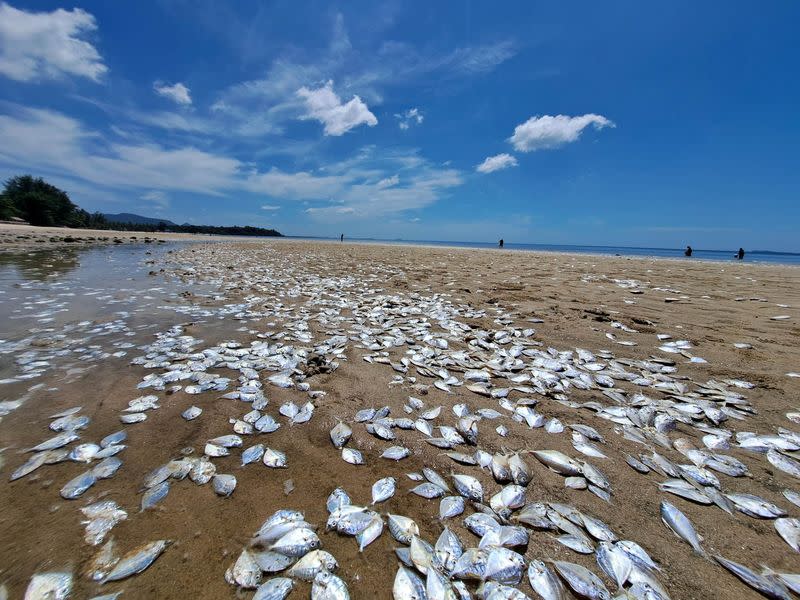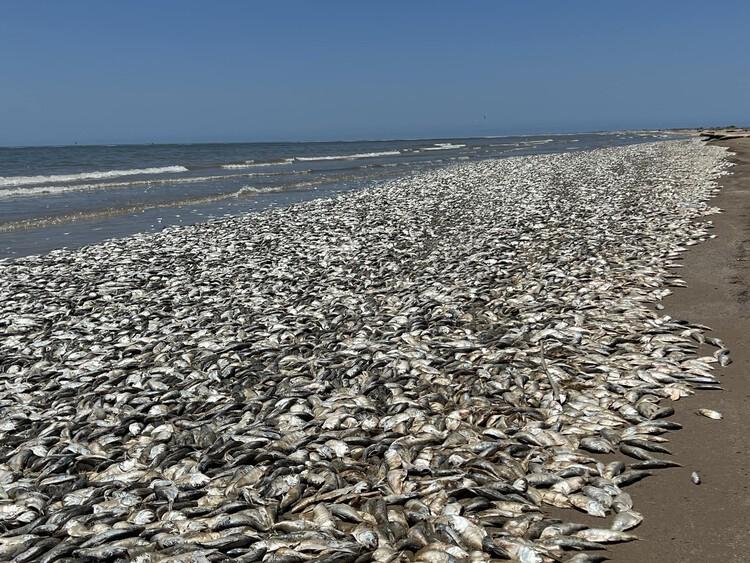(CTN News) – A recent incident in Thailand’s southern Chumphon province has raised concerns about the impact of climate change on marine ecosystems.
Thousands of dead fish washed up along a 2.5-mile stretch of beach, and an expert from Kasetsart University has attributed this phenomenon to a plankton bloom induced by climate change.
The deputy dean of the Faculty of Fisheries, Thon Thamrongnawasawat, explained that plankton blooms, a natural occurrence that lowers oxygen levels in the water and suffocates fish, have been happening for thousands of years.
However, with global warming, these events intensify and occur more frequently. Plankton blooms typically occur once or twice a year in the area and last for two to three days.
Texas and British Coast Witness Dead Fish and Algal Blooms as Sea Temperatures Rise
Local authorities have taken action by collecting seawater samples for further assessment and analysis. The incident in Thailand adds to the growing concern over marine heatwaves worldwide.
Global sea surface temperatures for April and May broke records, a trend attributed to the natural climate phenomenon El Niño and human-caused climate change, resulting in higher temperatures for oceans and land.
This year, other regions have also witnessed the devastating effects of rising sea temperatures. Texas experienced thousands of dead fish washing up on its beaches, while algal blooms have been predicted along the British coast.
In Southern California, a toxic algal bloom has led to the death or illness of hundreds of dolphins and sea lions. Although the algal blooms in California were primarily caused by strong coastal upwelling, scientists warn that climate change is likely to increase the occurrence of toxic algal blooms, as some species thrive in warm water.
Climate scientist Sarah Perkins-Kirkpatrick from the University of New South Wales emphasized the detrimental impact of marine heatwaves on ecosystems, such as the Great Barrier Reef in Australia and coastal regions in England.
These incidents underscore the urgent need for global action to address climate change and mitigate its devastating consequences on marine life and habitats.
conclusion
In conclusion, the recent fish mortality incident in Thailand’s Chumphon province highlights the link between climate change and the worsening of natural phenomena like plankton blooms.
As sea temperatures rise globally, the frequency and intensity of such events are expected to increase, posing significant threats to marine ecosystems worldwide. Immediate measures and global cooperation are crucial to combat the effects of climate change on our oceans and safeguard marine biodiversity.





